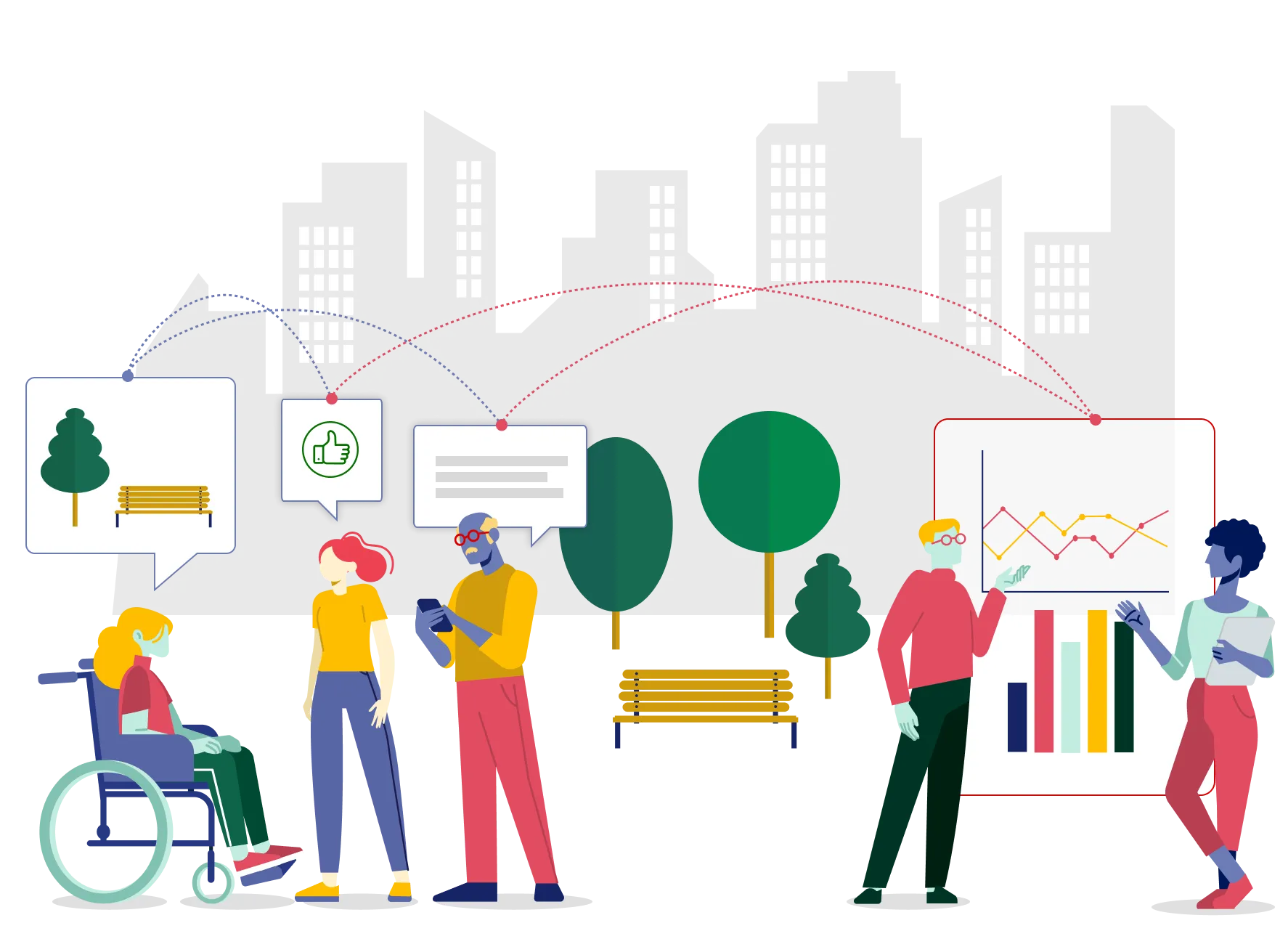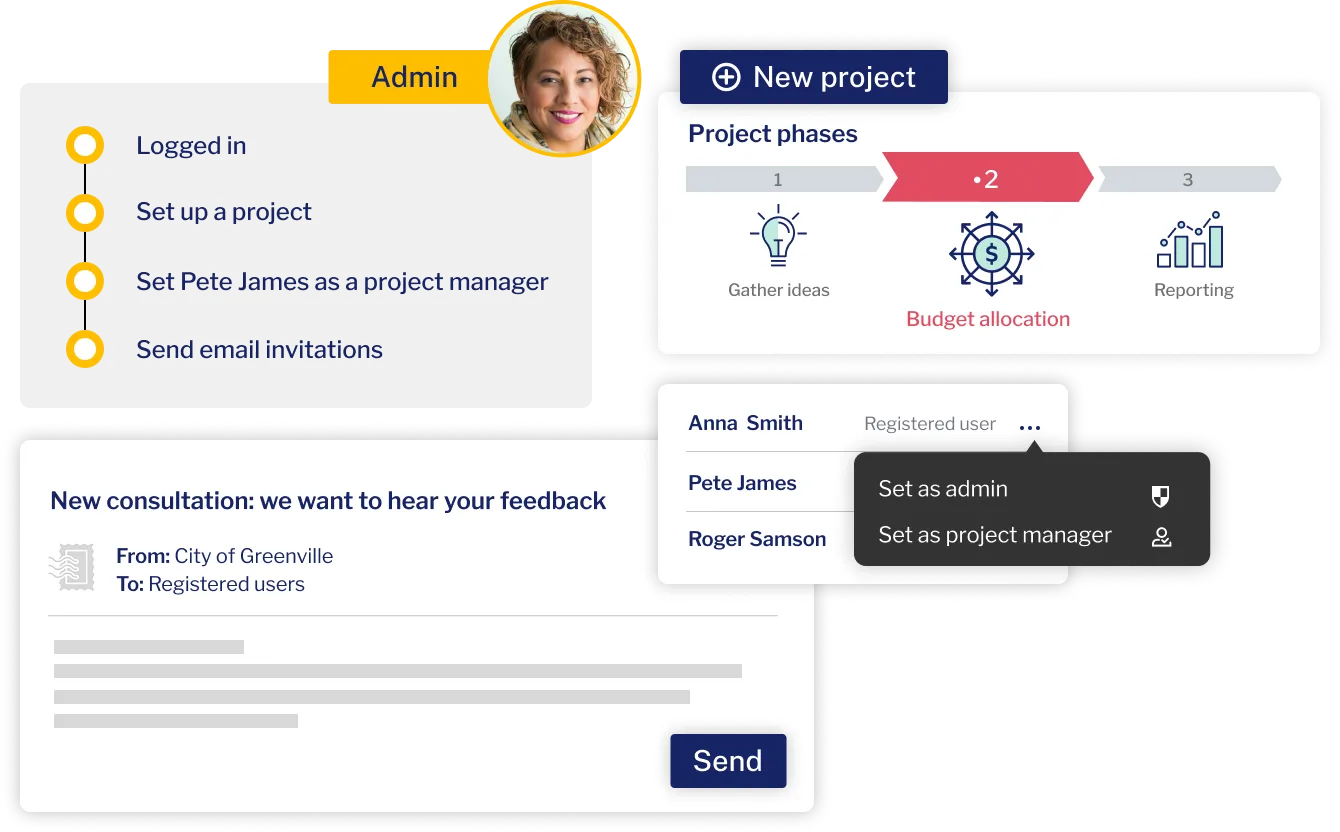The #1 community engagement platform —
independently ranked, trusted by 600 governments
Reach residents where they are and turn input into insights – with one platform
Go Vocal empowers governments to collect resident input – anytime, anywhere, streamline workflows, and leverage AI for deeper insights.




















































.svg)

